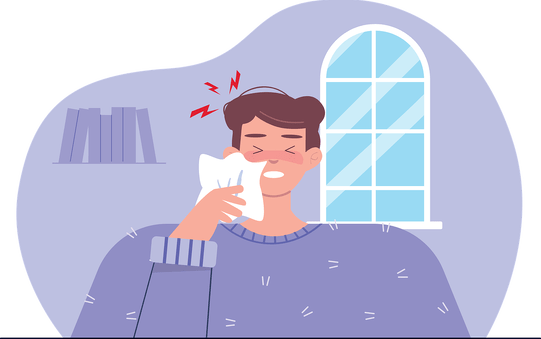Whooping cough (pertussis) cases increasing in Te Upoko o te Ika a Māui/Greater Wellington
13 cases of whooping cough (pertussis) have been notified so far since the beginning of May in Te Upoko o te Ika a Māui/Greater Wellington.
~
What is whooping cough?
Whooping cough, or pertussis, is a very infectious illness that can cause severe bouts of coughing and breathing troubles. It is sometimes called the "100 day cough" because it can last up to 3 months. You can pass whooping cough on to others before you even know you've got it. Pēpi (babies), tamariki (children), and the elderly are at particular risk of complications from whooping cough. In severe cases, whooping cough can lead to pneumonia, paralysis, brain damage, and other health concerns, or even death.
Visit Healthify to read more about symptoms of whooping cough for different age groups and other important information about whooping cough.
~
How can I protect myself and my whānau against whooping cough?
The best protection for yourself and your whānau is staying up to date on your whooping cough vaccinations:
Pregnant people: a free whooping cough booster vaccination is recommended in every pregnancy from 16 weeks. Vaccination during pregnancy enables antibodies to pass to your pēpi via the placenta, giving your pēpi protection for their first few months of life.
Whānau of pregnant people: if you're spending time around a pregnant person or infants, check with your nurse or doctor about when you last received a whooping cough vaccination and whether a booster is recommended.
Pēpi and tamariki: whooping cough vaccinations are free for all babies and children at ages 6 weeks, 3 months, 5 months, 4 years, and 11 years. It's important that tamariki receive all five of these whooping cough vaccinations. If you think your tamaiti (child) has missed or is overdue a dose, please get in touch with us to check. Young people can receive free catch-up doses up to the age of 18 years.
45 and 65 year olds: at age 45 years you're eligible for a free whooping cough booster if you've received less than four tetanus doses in your life time (the tetanus vaccine, Boostrix, also vaccinates against whooping cough and diphtheria); from age 65 years you're eligible for a free whooping cough booster if it's been more than 10 years since your last tetanus vaccination (the tetanus vaccine, Boostrix, also vaccinates against whooping cough and diphtheria).
If you're not eligible for a free whooping cough vaccine, you can pay to receive one.
Additionally:
Stay home if you're unwell / have any respiratory symptoms (the possibility of having Covid-19, the flu, whooping cough, or even the common cold are all good reasons to do this!)
Do your best to isolate yourself from others in your household if you're unwell
Cover your mouth and nose for any coughs or sneezes
Continuing to wear a face-mask in public spaces will help to protect you from Covid-19 as well as other infections such as the flu and whooping cough
~
What do I do if I think myself or someone in my whānau has whooping cough?
First thing to do is call us (or, if your family member is enrolled elsewhere, call their medical centre). All of our patients with any respiratory symptoms are triaged over the phone by one of our nurses before any appointments are booked. One of our nurses will discuss your symptoms and then advise you on the next steps.
The "whoop" sound that whooping cough is named after isn't the only symptom - especially in pēpi under 6 months, who often won't "whoop" at all - so it's important to be on the look-out for other symptoms of whooping cough as well. More information can also be found through Te Whatu Ora.
~
If you're unsure or have any concerns, get in touch with us!

